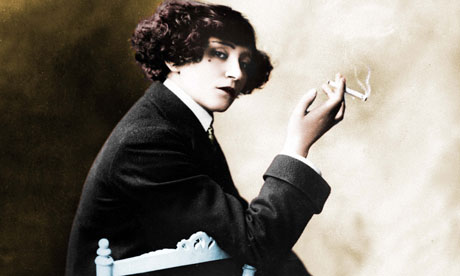"What a wonderful life I've had. I only wish I'd realized it sooner."
When I was an aspiring actress in the early sixties, my head full of romantic notions, and fit to conquer the theater world, I had a series of nothing-much jobs. One of them set me up in a slightly larger than telephone booth sized structure at the center of Schubert Alley, where, for eight hours a day I dispensed show times and Schubert theater deals. During that Summer I read absolutely all of Colette. It was a fertile time to be alive.
"The great French writer Colette has nearly 80 volumes of fiction, journalism and memoirs to her name. When I was a teenager, reading her bestowed a sense of entitlement to pleasure which a procession of Victorian heroines had gone a fair way to extinguish. Self-abnegation played no part in Colette's world, fictional or otherwise. Her writing is as sensuous and acute as it is unsentimental, dwelling on "Ces plaisirs qu'on nomme, à la légère, physiques." Inspiringly resourceful, she broke free from an exploitative husband after the early succès fou of her Claudine novels to work the music-halls, playing a half-naked faun and an Egyptian mummy in a jewelled bra. She married three times, yet she never put the needs of others before her own and she never stopped making money from her writing. Far from worrying about the children, when she had a baby at 40 by her second husband (exactly nine months from the day her own mother had died), she planted her in Brittany with a strict English nanny and only visited every few months or so. At 47 she started an affair with her 16-year-old stepson which was to last almost five years.While not exactly a role model, at least she showed there were other ways of doing it. Hard-headed and hard-working, she was low on pity for herself and others. Her letters are full of descriptions of meals; at 50, weighing an unapologetic 13 stone, she still looked good in a swimsuit. Her novels were admired by Proust and Gide. The third marriage was her happiest, and she was at her most productive in her 50s and 60s. Immobilised by arthritis in her final years, she continued to write from the daybed she called her "raft" up at a window in the Palais-Royal (her last word was "Regarde!"). Nor did she die horribly, or suffer vile punishment; she lived to be over 80 and was the first woman in France to be accorded a state funeral. Her prose is very beautiful and subtle, and I feel more alive when I read her."


No comments:
Post a Comment